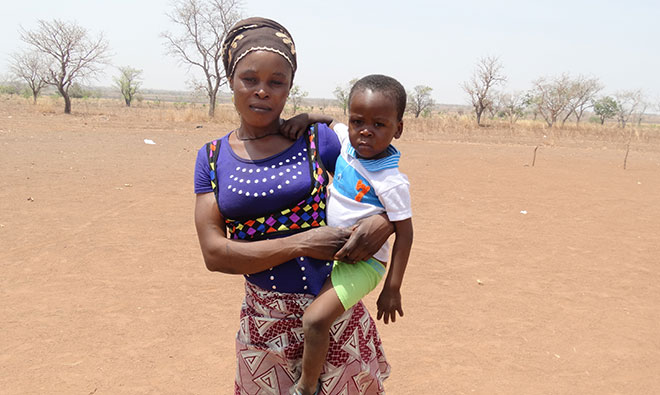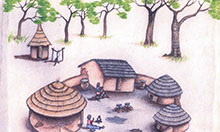
Poverty is often a precursor to malnutrition. When families don’t have access to diverse diets and proper sanitation, the youngest members in the critical first 1,000 days, from pregnancy up to the child’s second birthday, suffer lifelong consequences that only further the cycle of poverty. Working with existing poverty alleviation programs is a natural entry point for nutrition programs seeking to reach the most vulnerable households.
In early 2015, the Government of Ghana extended its Livelihood Empowerment Against Poverty (LEAP) program for alleviating short-term poverty among needy households to reach pregnant and lactating mothers and children under two – calling it LEAP 1000, with funding from USAID. Many families in Northern Ghana rely on farming for a living, and many encounter economic difficulties as a result of unfavorable weather patterns, illnesses, or lack of access to agriculture inputs. LEAP 1,000 cash transfers provide families with the financial means to access health care and maintain proper nutrition during these times.
SPRING/Ghana is maximizing chances for achieving more results from its multi-sectoral nutrition programs by prioritizing implementation in LEAP 1,000 communities, enrolling community members in a wide range of nutrition-related activities, such as mother-to-mother support groups, farmer field schools, and community-led sanitation. Participating in SPRING’s nutrition-based support helps empower LEAP 1,000 members to make improved nutrition part of their LEAP benefit through the purchase of healthy diverse diets. The combination of the SPRING and LEAP 1,000 strategies not only helps families in times of need but also strengthens families’ ability to break the cycle of poverty by ensuring the optimal mental and physical development of Ghana’s next generation.
